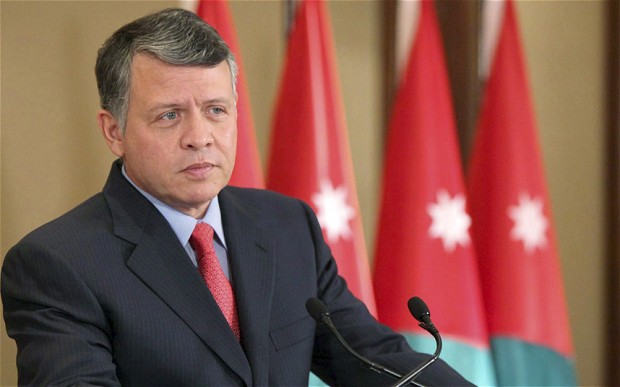Jordan’s King Abdullah II dissolved his country’s parliament after announcement of a royal decree on Sunday, ending the body’s four year term before upcoming elections. The last time the King dissolved parliament was in 2012, a move that helped quell the opposition unrest and rising anxiety amid turmoil in the Arab world.
Jordanians now prepare for elections scheduled for October or November, the first under a new set of the voting laws approved by the lower house this year. As part of the transition, King Abdullah appointed Hani Mulqui as interim prime minister ending Abdullah Ensour’s term in the post. Mulqui, who is also an economist, has held other senior government posts and is under pressure from the King to increase economic growth. He will also oversee an independent election commission and implementation of the new election law. Some other cabinet level officials were also rotated out in the decree.
Under the new election bill, Jordan has eliminated the longstanding “one-person, one-vote electoral system,” in which citizens were given one vote for a candidate at the district level, and another vote for a closed list at the national level. The reformed law mirrors a mostly defunct 1989 law that established an at-large election system in which voters were given the number of votes proportionate to the number of seats designated for their district in the lower house, with votes cast for both multi-member lists and individual candidates on one large ticket. Quotas that included space for minorities in parliament, such as Christians and women, will also be retained in the new system.
While proportional votes from multi-member districts result in a more diverse parliament, it also gives significantly easier access to seats from opposition movements — namely the Muslim Brotherhood. The Islamist political party, Islamic Action Front, staunchly opposed the emergence of the “one-vote” electoral system in 1993 because it placed significant legal roadblocks on their political activities. Under the “one-vote” system, Amman could easily gerrymander districts in order to over represent conservative and pro-regime communities. With more restrictions on voting, many Jordanians would prioritize their strong tribal identities before religious ones, leaving Islamists parties feeling disenfranchised.
Some opposition groups, including the Muslim Brotherhood, have voiced support for the reforms, characterizing the changes as a “step in the right direction.” While the new election laws help appease Islamists with more representation in parliament, it ultimately will not change the relationship between the King and Parliament.


